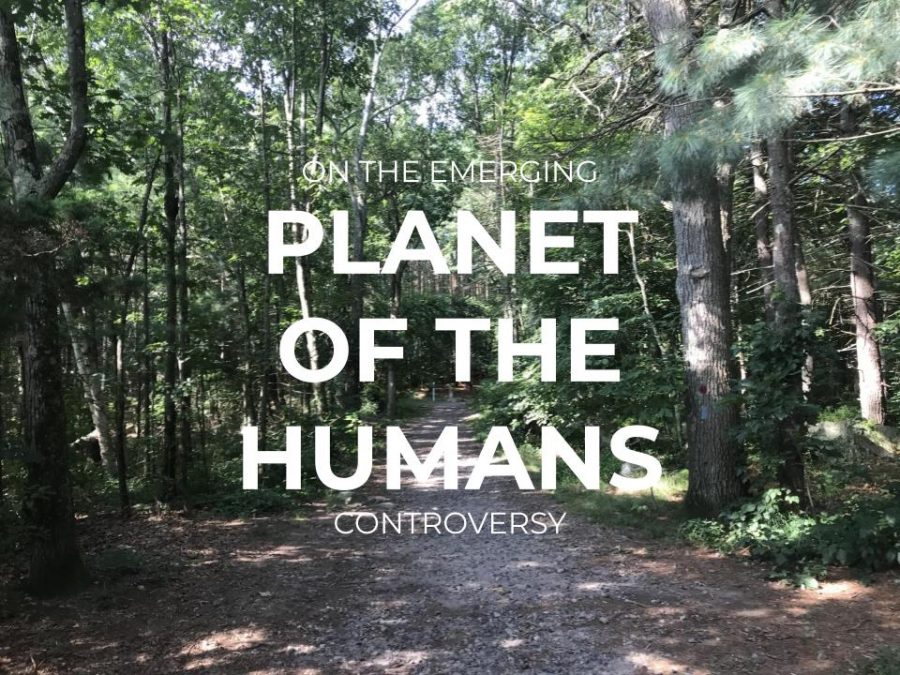On the emerging ‘Planet of the Humans’ controversy
In summer of 2019, Jeff Gibbs and filmmaker Michael Moore debuted the premiere of their new climate change documentary “Planet of the Humans,” which argues that many in the renewable energy industry have become just as corrupt as those in the fossil fuel industry by false promises of indefinitely sustainable energy or corporate contributions.
May 19, 2020
In summer of 2019, Jeff Gibbs and filmmaker Michael Moore debuted the premiere of their new climate change documentary “Planet of the Humans,” which argues that many in the renewable energy industry have become just as corrupt as those in the fossil fuel industry due to false promises of indefinitely sustainable energy or corporate contributions.
However, the movie was only widely available after Moore released it for free on YouTube, at which point it quickly accrued millions of views, acclaim and criticism. The film (narrated by Gibbs) shows how many sources of supposedly renewable energy are actually detrimental to the environment, exceedingly costly or even rely on fossil fuels like natural gas to facilitate their use. One cornerstone example of this is biomass, which involves using organic matter as a fuel, often through burning vegetation and waste, generating steam and producing energy. Gibbs argues it is dangerous and unsustainable due to how many trees must necessarily be cut down to meet minimum biomass operation thresholds; the rate at which trees grow is far exceeded by the rate necessary to use biomass. Gibbs even said that sustainable biomass would require the holistic “consumption of the living planet.” He further points out how the technologies used to cut down these trees must also necessarily use fossil fuels as their source of power.
Not one big name goes unscathed by this film; everyone from Ronald Reagan to Michael Bloomberg and Al Gore is criticized. Gibbs acknowledges the good intentions of most environmentalists, but claims they are misguided by false promises and false heroes. Besides going after specific ‘renewable’ products like electric cars (which, as Gibbs notes, are recharged by companies deriving energy from coal or natural gas) or solar panels, Gibbs specifically criticizes Al Gore, an environmental movement idol. He accuses Gore of hypocrisy by being a major Goldman Sachs financier, as well as selling his television network in 2013 to Al-Jazeera, which is funded by Qatar, a major oil-producing country. Bill McKibben, another environmental hero, is also criticized for corruption as well as his support of biomass.
This criticism of false idols extends across company lines too; Gibbs criticizes the Sierra Club, the Nature Club and others for taking from and giving money to oil companies, including some sponsored by the Koch brothers (who founded Koch Petroleum). The film postulates that most ‘green’ companies only claim to be to give themselves a positive public image, while in reality, they are cooperating with the very groups they claim to oppose. Therefore, Gibbs sees the only solution to the expanded production of fossil fuels to be mitigating excessive population growth.
However, this film has been met with much criticism. Environmental activist Josh Fox, for instance, claimed that much of the footage was a decade old, displaying much less efficient technologies than are currently available. “Planet of the Humans” has also been criticized for citing misleading or entirely false statistics, such as a pie chart early in the film which wrongly claimed yearly energy use was 1,000 times higher than present total battery storage.
McKibben also responded, claiming that he never supported biomass (though the documentary provided video of McKibben suggesting otherwise). He stated that “the filmmakers didn’t just engage in bad journalism (though they surely did), they acted in bad faith. They didn’t just behave dishonestly (though they surely did), they behaved dishonorably.” Along with climate scientist Michael Mann, McKibben has called for an apology and removal of the video.
Many others criticize the movie for being darkly Malthusian, given how Gibbs believes exponential population growth to be the driving factor behind excessive emissions. Some have even claimed that the film implied population control was the solution. In response to this criticism, Gibbs said, “We merely point out, as there was a UN study that came out one or two years ago, that just points out that the doubling of our human numbers and the quadrupling of our human economy is the prime driver of extinction on this planet. Is the UN favoring, you know, population control? No.”
Released for free on the 50th anniversary of Earth Day, “Planet of the Humans” has been a sharply divisive film. However, it is sure to be a thought-provoking one too, especially as the 2020 Election comes around the corner.









